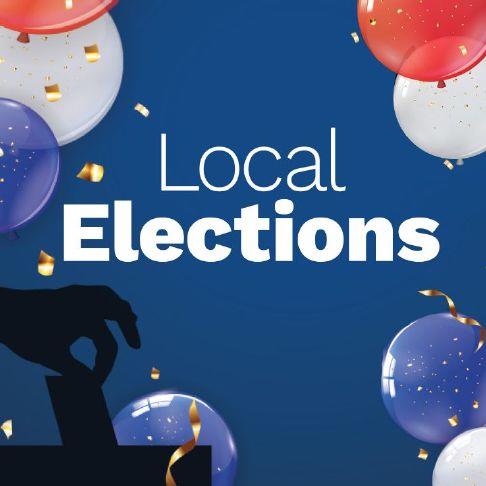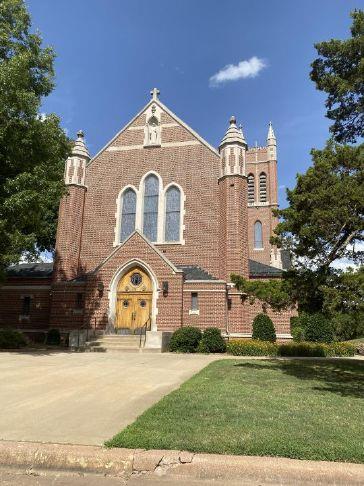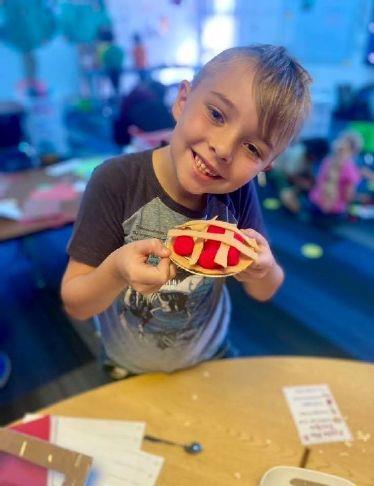Recently, the first of three local PAVE (Pottawatomie County Advocates for Voter Education) forums was presented so residents could get a glimpse of where the candidates stand on issues before the June 18 primary elections.
Candidates for Shawnee City Commission Ward 2 gave brief opening statements and responded to written questions from the public. Questions were submitted at the forum or in advance by email and were screened for appropriateness and duplication.
Ronnye Perry Sharp served as moderator.
Vying for Ward 2 are four newcomers, Cyndi Berger, 36; Dana Browning, 49; Sydnie Davidson, 41; and Greta Madson, 41.
Some of the candidate questions and responses are, as follows:
QUESTION: What is your experience, if any, with government finance and budgeting? BERGER: I don’t have any experience in budgeting or finance in government. My experience comes with investigating things involving finances, exploitation, things like that. I am here to be a voice for the people, so, learning the budget is part of what I have to do and I’m willing to do that. I research everything; I research when somebody asks me a question, so I have no problem learning something new and saying when I don’t know something. I will make an effort to learn so I do understand it.
BROWNING: I’m hoping to get the opportunity to have this experience. I don’t have any actual experience in finance and budgeting, but I did serve on the Dibble school board when they constructed a new school. I oversaw all of those things, the punch list items and where the extra money had to come from, so just a little bit from a school board job is about what I can volunteer for this job.
DAVIDSON: I worked with the Oklahoma Corporation Commission for 10 years. I was the manager of the department, and we did put on some workshops for mineral owners, so I had to work with a budget in those confines. So, very minimal with government finance and budgeting. Before that, in my previous pre-children life, I did work in banking; I was a commercial lending assistant, and I did work with businesses around town that needed loans for their businesses. Basically, I ran a program where they would sell their invoices to us, we would forward that money – front the money – and then wait for the payments. I have some budgeting experience.
MADSON: So, I am self-employed; my husband and I own multiple businesses, so I work on a shoestring budget 24 hours a day, seven days a week, personally. As far as my experience with government specific – I managed a cemetery and funeral home combination, which, the cemetery was a multi-million dollar revenue source and also the expenditures that go along with that are very in line with what – obviously smaller scale, but what – the city has to manage and operate with, as far as road, construction, things like that, maintenance, overall maintenance. … all of that budgeting as far as revenue as well as the relationships between those two financing parts. So, I do have significant experience with big budget.
QUESTION: What is your experience with municipal land-use planning? How will you make final zoning decisions based on recommendations from the Planning Commission? BERGER: I don’t have experience in municipal land use planning; I have been coming to the Commission meetings, where they have talked about things like the zoning for certain projects. I think it’s important to listen to what the Planning Commission is recommending and looking at it and making sure I would fully understand, but I think it’s equally important to listen to what the people want. Sometimes that includes having a conversation to explain why the city is trying to do something, because sometimes a simple clarification can help solve any of the doubt, and if you’re explaining it and talking to the people, they’re going to be able to let you know what they want, too, and taking all of it into consideration together.
BROWNING: I don’t have any experience with the municipal land use planning; I would also be looking at what the Planning Commission is recommending, but it’s vitally important to know who that’s going to directly impact and what their thoughts are. I live at the lake and I know sometimes you get some information that some things are going to come that directly impact you, but you get it either too late or you have half of the facts and you’re not really sure. So, I think just having conversations; we have be able to relate to whom that’s going to impact and what their thoughts are and work together to get a solution where we can somehow meet in the middle to make sure everyone is getting what they need.
DAVIDSON: I think, just like everyone else up here, I don’t have any experience with this; I think we’re all going to have a very large learning curve no matter who is elected. So, I think it’s going to be really important for us to educate ourselves in the areas that we’re going to have to be making decisions. Not just in the initial issues as being brought, but just as the whole I think we need to completely understand our authority in our role in those decisions.
MADSON: So, I have actually attended a couple Planning Commission meetings, so I know how the meetings work, and I think that not only do we need to know when making a decision regarding the use of land and rezoning, I do think we need to know what our voters want; we also need to know what the city needs and long-term effects and also if we vote something to not happen if that will open us up to any legal liability. There was a vote recently that could potentially have been – I think it should have been explored a bit further. I think some of those need to be really thought out before voting yes or no.
QUESTION: What are your main priorities? MADSON: My biggest priority is going to be the lake, which is our water source for Shawnee – protecting that, preserving that; making sure that there is somewhat of a plan as to the repair of the dam. That is a huge priority for me. Another priority is that — I really want to do what’s best for Shawnee as a whole, not individual groups, not individual persons – Shawnee as a whole. I think that we need to have some transparency, as far as financials, and I think that we really need to come together as a community and love where we are, and that’s what I really want to prioritize.
DAVIDSON: Beyond the obvious issues that we have, like infrastructure and homeless problems, I’d like to see a change in our city’s reputation. I think that having a reputation of not being a great place to live would affect our economy; it would keep investors from coming into our city. It would keep tourists from coming and spending their money here. I think it would be really important for us all to take pride in where we live and to change the narrative about our town.
BROWNING: My main priorities would be communication and relationships. That’s where I would want to start. I think we need to have more transparency. I think not having that has caused confusion and it causes people to make assumptions and I just think we need more transparency. My other priority would be research. I don’t have experience in this position, so I will be doing a lot of research to figure out what the concerns are and how we go about addressing those on the proper way. Safety is another priority as well as the dam – I’m at the lake, so, those are some real concerns we have in our area, particularly.
BERGER: My priorities involve community involvement, transparency and safety. I think we hear everybody say transparency all the time, but the biggest part of that is communication. For me, being able to ask questions and have people ask me questions where I’m available to answer them and look into those answers. Community involvement – we need more people involved, because the more people that get to asking questions, the more transparency we get and the safer things become. So, you cannot have one without the other. If we’re talking and talking about things, then there’s nothing to hide because it’s already being discussed.
QUESTION: Do you support a citizen police review board? MADSON: I can’t answer that because I don’t know exactly what that is. I’m going to guess what that is. As long as it is a constructive scenario instead of a destructive scenario of feedback of some sort. I do support that, but at any point that it’s not a constructive or helpful board, I would not.
DAVIDSON: I definitely think it’s an intriguing idea. I think we would need to look into the ins and outs of that. See if it’s legal, how the government would work in that and make sure that it would have good citizens on it that were willing to put the work in to do all the research needed to make sure that it functions as it needs to.
BROWNING: I would need to have a lot more details before I could really say one way or another. I wouldn’t be opposed to that, but I think that the people on that board would need to walk in the shoes of those police officers – they have to make split-second decisions every day, their life is on the line. I just think if you get people who are uninformed about what they do or don’t really understand all of the components of the police force, I’m not sure that I would be real supportive of that.
BERGER: I think it would be a good idea, and I want to say that because it’s not only there to give the public’s opinion and perspective as to what is being done with law enforcement in the city, but it also gives law enforcement a chance to discuss why they do the things they do and to defend themselves when they are right. Just like any other job, you’re going to have good people and you’re going to have bad people. That doesn’t change with the type of job you have. So I think a citizen review board for the police department would be helpful to not only the public to be able to express concerns but to the police themselves to be able to say, ‘hey, this is why something is done,’ because that communication can help clear up some of those differences and ideas.
QUESTION: How do you plan to review tax increases? Are you in favor of adding sunset clauses? MADSON: I am in favor of adding sunset clauses; I think that’s a great idea. As a city we have one of the higher tax rates in the area. Sales tax actually does drive consumers to shop elsewhere a lot of times. So if we have a … sales tax to keep our dollars spent inside our community to actually make more tax dollars as opposed to just increasing our sales tax to our residents, I think that is a huge benefit.
DAVIDSON: I was told that it’s good to continuously review anything that we do to make sure that what we have started is still achieving what it was intended to do, so, yes, I think the sunset clause would be a very good idea.
BROWNING: I also would be in favor of the sunset clause review. I also think that when you’re looking at those tax dollars and how they are going to be spent, when they make that decision, it needs to go into effect a little more quickly. I think that you’re deciding on these taxes and where they’re going and it’s a long time before you see them affect a project that they are deemed for.
BERGER: In reviewing those I would say you would have to also look at how we had an increase in spending in places and is there a decrease somewhere else? A sunset clause is good because it gives the people an idea of how long is this going to go on for. It’s probably more willing to get people on board with it when they can see an end date and there is something in the works that it’s going directly toward. So, absolutely, I would support that.
PAVE forum
PAVE is the successor organization to the county League of Women Voters. The non-partisan group has been hosting candidate forums for several years.
The next forum, focusing on Pottawatomie County races, will begin at 7 p.m. tonight (Thursday, May 23) in the Shawnee City Hall commission chambers and is open to the public. The forum will be live-streamed on the City of Shawnee website and recorded for later playback.
Voting
The election is June 18. Polls will be open from 7 a.m. to 7 p.m.
The deadline for voter registration to vote in the June 28 election is May 24.
The deadline for an absentee ballot request is June 3.
Early voting starts June 13 and 14, from 8 a.m. to 6 p.m.; and June 15, from 8 a.m. to 2 p.m.




